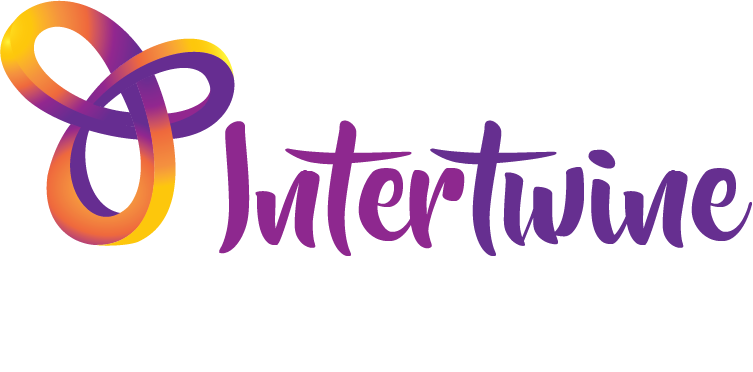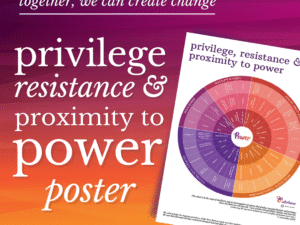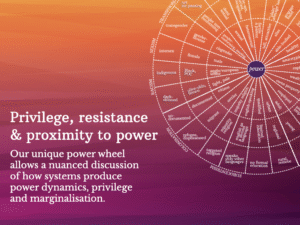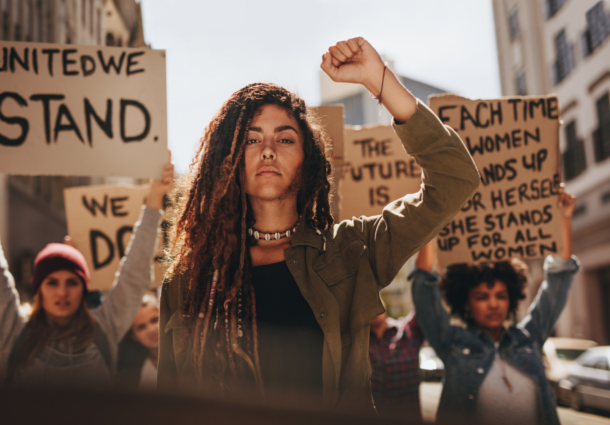Ro: Thanks so much for joining us today. Can you tell us a bit about yourself and your own lived experience?
Juniper: So hello, I am Juniper Muller. She and they pronouns. I am a registered psychologist currently working in private practice, under Melbourne Queer Psychologist. And, yeah, working on Wurundjeri Land and I live in Boonwurrung country.
Being queer and in queer community or being trans — and having experienced medical transition as well — gives me some special access to some different areas of knowledge. That is why some clients specifically come to me. And I suppose I’ve also marketed myself too as a queer therapist who sees queer people. So there’s some level of that [where] I see a usefulness but there can be dangers to that. Sometimes clients will guess that I know absolutely everything about some aspect of queerness when, you know, I don’t have perfect knowledge in any area.
But, I also think about where I might have personal limits of lived experience and so need to go out and search for that knowledge through books or podcasts or, you know, talking to people. Like, I think something that I’ve been thinking a lot about for the last few years is fat activism and sort of like fat justice and liberation. And that, like, I’ve always been thin and straight-sized.
And so I have been trying to get understanding from people who have shared that knowledge publicly so that I can try to get my knowledge from nothing — or, you know, societally biased bad shit — up to at least some minimum level.
Ro: I was wondering if you can talk a little about what intersectionality means to you and how it comes up in your work?
Juniper: I’ve kind of run myself into the niche of gender, sex and sexuality. And so I suppose, I think a lot with those hats on. Thinking about power and privilege and social dynamics. And I guess to me, I’m very much not of the sort of ‘old psychology’ opinion that you just look at the individual and it’s just about their brain and it’s just about their independence. I think more holistically about socio-cultural factors and how people are situated.
It just really makes sense to me when I’m thinking about whole people situated in society to think about all of the intersecting and compounding ways in which power and privilege works for them or against them and how that might change. What is their access to help? Or what is their access to community? Or what types of harassment or discrimination they might be facing on the sort of individual, ‘receiving verbal harassment on the street’ kind of level or the big systemic ‘unable to get jobs’ or ‘intergenerational poverty’ kind of level or, I don’t know, what things might be affecting them in the news.
I came to psychology through an arts degree and through anthropology and, I guess that always made sense to me as important. But yeah, all, all through my clinical practice it’s been crucial thinking about intersectionality and kyriarchy and, yeah, all of these sorts of things.
Ro: Oh, I love that you just used the word ‘kyriarchy’. I remember that that was the word before intersectionality, right, before it was more widely known.
I think one of the other things that happens is that intersectionality is sometimes misunderstood as being about identity. So then queer and trans identity is included. But the idea of mental health or economic struggle isn’t because we’re not talking about the systems. And if we don’t talk about the systems, we can’t talk about all the intersections. Can you talk to that?
Juniper: I suppose that goes to, “where am I situated in the broader health system?” And how do I connect clients to parts of the health system that they might qualify for but maybe just don’t know about. There have been times where I’m like, “Oh my God, I’m seeing this client when I as a private practice psychologist probably shouldn’t be seeing this client,” but I’m seeing them because there’s nowhere else for them to go, because of the multiple levels of discrimination and systemic oppression.
They should be seen by community care, by a multidisciplinary team. But who is that community care, multidisciplinary team? Who is trans-inclusive, neuro-affirming, disability inclusive? Who is willing and able to maybe be flexible with their times? Actually this is probably part of my financial privilege — I can afford to see clients at a sliding scale and I can afford to continue to see clients even if they cancel semi-often.
Ro: And the specialist places like Equinox and Northside Clinic and the other community queer spaces are completely booked out.
And then as you say, the other mainstream community places, even if they weren’t fully booked out, that are not, you know, trans inclusive necessarily. And so you have these challenges of places that don’t include all of someone.
Juniper: I run the Inclusive Practitioners list as a side project [for exactly that reason], to try to create this database of practitioners with different expertise and different lived experience from a range of professions. I feel quite proud of that work as an extra resource in the system to help connect people. But also really as a place for me to send people on to.
Ro: Could you tell me what made you decide to sign up as an intertwine co-conspirator?
Juniper: I’d say it was an easy decision for me once I was on the website and thinking about it. I don’t think there is enough of that work being done in these spaces.
And it’s work that should be sustained and financially supported. And I suppose it’s a way that I think about, ‘how can I do that?’ I don’t have the time to go out and do the work that you’re doing as well as doing everything else that I’m doing. And so actually, me feeding some money into it is a way that I can help that continue on.
Yeah. And certainly I’ve benefited from your workshops and bits and pieces of social media or posters or the things that you’ve produced before. I think also, it really seems that as an organisation, you’re doing quite well looking after your staff and doing important and effective work in good ways.
Ro: Thank you — that’s definitely the aim! Certainly for us, unlike a lot of organisations our size, we don’t use volunteers because everyone that we’re working with has living expertise and we want to pay people a fair wage. So that’s probably our biggest challenge — that everyone’s expecting, in this community services space, for people to be doing things for nothing.
And, we know that, when you are someone living at the intersections of multiple systems of discrimination, you’re exhausted, you don’t have time to do spare work for nothing.
And so that’s exactly why we are fundraising and hoping that people will join us as co-conspirators, to support the venture and to support the values driving it.
Juniper: Really for me, I think the people who are experiencing these multiple marginalised identities and oppressions and are using some of their special knowledge or using some of their skills should be compensated. It’s an equity thing as well, really.
Ro: 100% that.
So, we chose the name co-conspirators very deliberately. We see our co-conspirators as part of our community working together for the same goals. We are very much coming from an inclusive, collaborative space. You get an invite to our quarterly updates to come and hear what we’re up to. And we also ask our co-contributors to help drive the direction of the organisation. So from your point of view, what should intertwine be focusing on next, do you think?
Juniper: Number one is Palestine and I guess thinking about current genocides and the ways in which colonialism and our state and country are involved in these things in an ongoing way. And how we treat immigrants and asylum seekers. And maybe number two is thinking about thinking about trans justice, which is, you know, I guess just an area that I’m really involved in. And so have the most front-of-mind stuff around.
Ro: Those are definitely two areas we’re keen to focus on as well. I was just part of a panel at the Better Together conference talking about queers, colonisation, Palestine and anti-semitism. And the kind of queer solidarity that I’ve seen in the Palestine movement has been just incredible between Jewish queers and Arab queers. And, you know, Palestinian queers. It has been just a fantastic experience of solidarity, of everybody just rejecting Israel’s pinkwashing outright.
Juniper: Yeah, I think I’ve seen the same and I think it’s, yeah, it’s worth talking about.
And, I’m increasingly seeing a willingness from a lot of queer community to take more of that direct action, liberationist action, ACT-UP kind of stuff around those issues.
Also around COVID safety stuff, I think it is a really current issue.
I mentioned the trans justice stuff also because I think it’s going to get a lot worse over the next few years. And Australia is really on a knife’s edge, where putting in more work now will perhaps stave off some of the worst of it or delay things…
Ro: And, maybe inoculate us against what’s coming down the line. I definitely feel like there are some pretty scary moments of people taking leaves out of the American playbook. And that we can’t just dismiss what we’re seeing in America, as, “oh, that’s over there”. What we saw with that local council in New South Wales trying to ban LGBTIQA+ books… We’re seeing people going, “ok, how can I utilise these right-wing tactics to suppress speech, freedom of movement?”. So 100% agree that that’s an area we really need to be focusing on.
Juniper: Yeah. Yeah, there’s too many things to focus on though.
Ro: That’s why we need more conspirators, right? We need more people in our corner!
I do think sometimes that we find ourselves struggling in a space and we don’t realise that sometimes we are the people with privilege until we really delve into this. And once you delve into this and genuinely realise, “oh, wait a second, I’m not free until everybody’s free”, then we start asking, “Well, where can I help? Where do I have energy? Do I have money? You know, what is it that I’ve got that I can contribute?”
Juniper: A lot of my clients are like queer lefties who are struggling with guilt about not doing enough. Probably the people who are most involved with activism, who are doing the most, are often those feeling the biggest amount of not doing enough. And so I suppose I both try to give some space to them to talk about what’s sustainable and also that them martyring themselves or sacrificing themselves is, like, not actually that useful.
Ro: I feel a tiny bit called out.
Juniper (laughing): No! No offence! Take it to your therapist!
But also, thinking about how I personally engage with these things and how do I hold my own ethics of integrity and role modelling and choosing where ‘enough’ is and, and making peace with that.
And for me becoming an intertwine co-conspirator is an easy choice that I feel really good about making because I trust the people involved, I trust intertwine to do a good job and it’s really aligned with my values and with my practice.
Ro: Well, we love you for it and we appreciate you. Thank you so much for making time to chat with me today!



